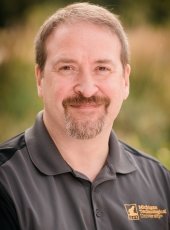The next session of the Center for Teaching and Learning (CTL) Instructional Award Series: Curriculum Development or Assessment is Tuesday, November 9, from 3:45 to 4:45 p.m. in Dillman Hall, Room 208. Please register for the session.

Todd Arney, Senior Lecturer in Applied Computing, will present “The Challenge of Making Complex Topics Accessible and Engaging to a Broad Audience.”
From the abstract: Sometimes, what starts as a simple question or task, turns into a lengthy and involved procedure or explanation that diverts us away from our original goals. For example, when someone asks a question like why isn’t my phone working?”, what they are actually asking is, “What is the simplest way to get my phone working?” In academia, so much time is spent on the nuances and intricacies of “why” we sometimes lose sight of the question “What is the easiest way to explain this?” — especially to an audience unfamiliar (or frankly uninterested) with the topic.
Recently, I had the opportunity to work with faculty in the College of Engineering (Civil, Environmental, and Geospatial Engineering) and bring concepts from the College of Computing (Applied Computing) to one of their “Water Resources System Modeling and Design” classes. The task became: “How could I take complex topics like cybersecurity, cyberethics, virtualization, the Linux operating system and computer networking and distill them down to the bare essentials and make everything accessible (and engaging) to non-technology classes and students?” In this presentation, I’ll share what I did, why I did it and how it was received.
Paul Sanders, Patrick S. Horvath Endowed Professor in Materials Science, will present “Advanced Tools for Undergrads: Using Material Design to Teach Materials.”
From the abstract: Many engineering students progress through the curriculum by learning the content of each course sequentially but not quite seeing the big picture. The Capstone Senior Design experience is a place where the big picture could come into focus, but often it does not. The field of view expands so fast that it can be overwhelming.
There needs to be a stepping stone between semester-size courses and real-world engineering. This reality led to the development of a design methods course that is greater than the sum of the parts. It uses graduate level and beyond tools to integrate many parts of the curriculum in a way that is comfortable and engaging. By simplifying the concepts and teaching the course as an example design project using advanced tools, the students begin to see how pressing engineering challenges can be solved by design methods outside the traditional box.
The format of this presentation will be a journey of personal discovery, or perhaps more honestly, how others who had the vision showed me how this was possible in an undergraduate setting. I’m standing not quite on the shoulders of giants, but rather on the shoulders of many competent educators and one expert who tricked me, and I refer to him as the “accidental mentor.”